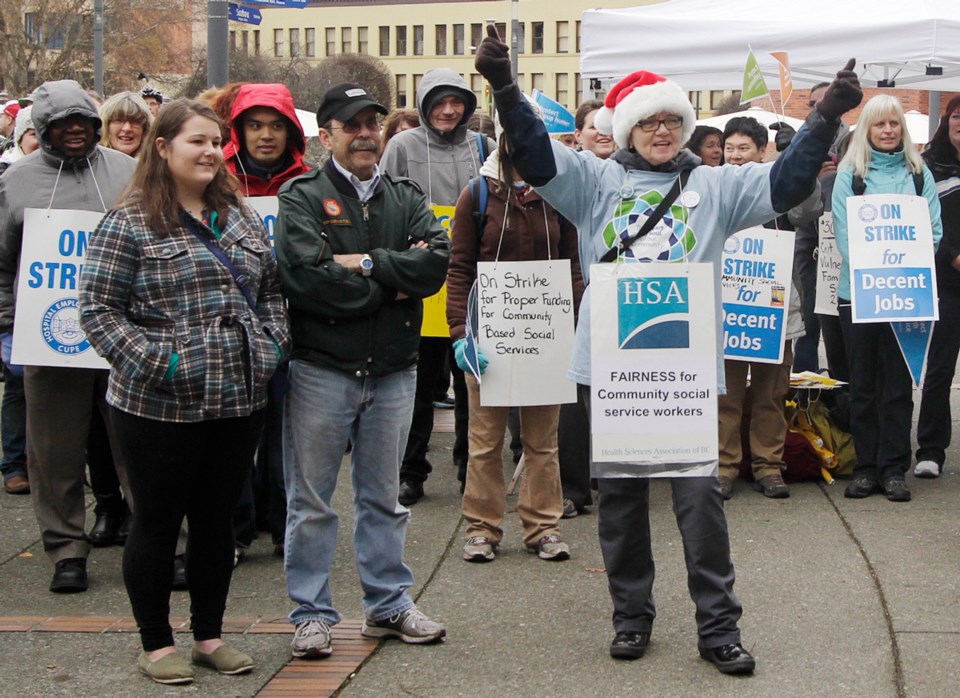Nearly 3,400 people who care for children and adults with developmental disabilities will walk off the job this week to press their demand for higher wages.
The rotating strikes will target community living agencies on the Lower Mainland today before shifting to Victoria, Kamloops, Creston and other centres Thursday.
It’s the latest attempt by 10 unions representing 15,000 front-line social service workers to end a stalemate with the B.C. government.
The unions began a series of rotating strikes, rallies and protests when talks halted last fall.
“We’re hoping this will put some pressure on to get us back to the table,” said Patsy Harmston, who chairs the community social services bargaining committee for the B.C. Government and Service Employees’ Union.
She declined to discuss the latest wage demands, but other union representatives previously said they were looking for a wage hike of two per cent a year over two years. They also want improvements to benefits and seniority rights for workers who are among the lowest paid in the public sector.
The government’s co-operative gains mandate requires that employers find savings from within existing budgets to pay for wage increases.
But the unions say the government has cut so much money from the sector in recent years that there’s no place left for agencies or employers to find savings.
“We do realize this is a fight we’re having with the government,” Harmston said.
Gentil Mateus, chief executive officer of the Community Social Services Employers’ Association, said he agrees with the unions that bargaining is “challenging” in tough economic times.
“But that’s not to say there aren’t opportunities to work together and collaborate,” he said. “It does require both sides be creative and give a little and take a little and maybe, hopefully, we can find an agreement.”
For example, Mateus said, the two sides could investigate the money spent on benefits and injuries in the workplace.
“If we’re smarter on how we work, would it be possible to realize some savings, or at least cost-efficiencies in those areas, which could then be channelled towards something else like wages?” he said.
Mateus said negotiations have been respectful and positive, and employers remain optimistic that talks will resume in late February.
Meanwhile, he said, essential services plans will protect the health and safety of clients during the rotating strikes by members of the BCGEU, Canadian Union of Public Employees, Hospital Employees’ Union, and seven other unions that make up the Community Social Services Bargaining Association.



